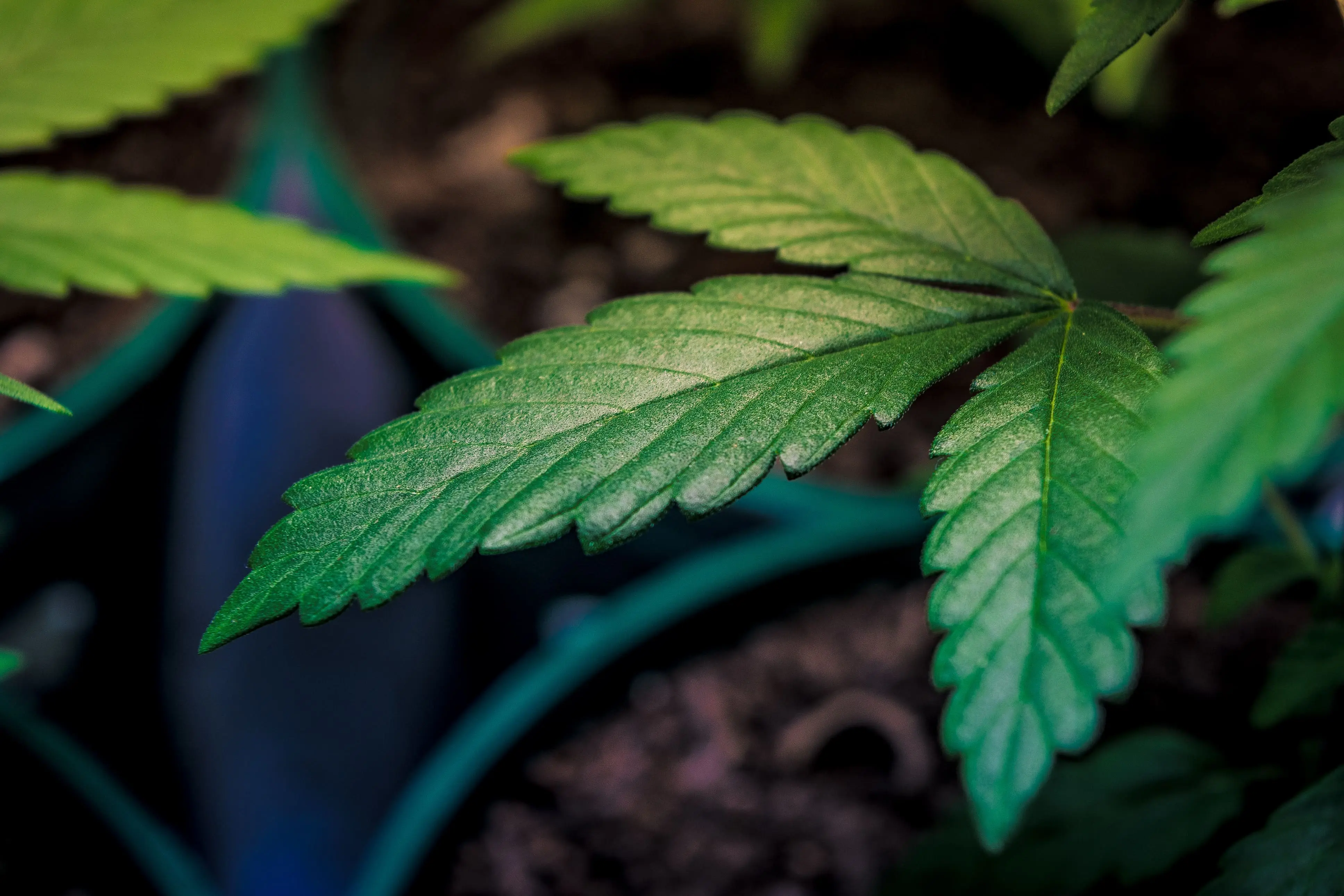Politics
New Hampshire House Passes Marijuana Legalization Bill That’s Sponsored By Top Republican And Democratic Lawmakers

The New Hampshire House of Representatives passed a bill to legalize marijuana on Wednesday.
The legislation, which is being sponsored by Majority Leader Jason Osborne (R) and Minority Leader Matthew Wilhelm (D), was approved in a 234-127 vote.
Rep. Anita Burroughs (D) said during Wednesday’s floor debate that the proposal is “good legislation that is the result of the goodwill and diligent work of both political parties.”
“We can now join other New England states that offer safe, regulated and a profitable cannabis industry to their citizens,” she said. The bill “allows us to do it the reasonable way, the responsible way, the innovative way and the bipartisan way.”
Speaking in opposition to the legislation, Rep. Lilli Walsh (R) argued that the bill “does not contribute to the common good” and “puts profits ahead of public health and safety.”
“Legalization of cannabis should not be a political issue. It’s a public health and safety issue,” she said.
I cast my vote on cannabis legalization from seat 4-20! 🟢 #NHPolitics pic.twitter.com/YibN5MAAmF
— Δmanda Bouldin (@BouldinAmanda) February 22, 2023
Members of the House Commerce and Consumer Affairs Liquor Subcommittee had spent weeks working the proposal over a series of meetings, going back and forth about a variety of provisions and making amendments to the original measure.
A major change made to the legislation from its introduced form would put the state’s existing Liquor Commission in charge of regulating the marijuana market, rather than create a new independent commission to do so, as was proposed in the original version of HB 639. The body would also be renamed the Liquor and Cannabis Commission.
Rep. John Hunt (R), chairman of the Commerce and Consumer Affairs Committee, said on the floor that his panel worked to “try to create a balanced bill that will address the issues that we have heard over the years in terms of the legalization of marijuana.”
He said that the rationale behind how the bill proposes to regulate the market through the Liquor Commission was to “take a model that we are successful with here in New Hampshire [for alcohol] and repeat it.”
Advocates are disappointed that provisions allowing home grow and to annul prior cannabis convictions have been removed from the bill as filed, but it was viewed as a necessary compromise for the legislation to have a chance of being enacted this session.
“The benefit of this legislation is to ensure the safety of cannabis in New Hampshire without forcing New Hampshire citizens to travel to our neighboring states and to create the opportunity for new business to be created in New Hampshire who will pay Business Profit Tax,” a committee majority report on the measure says.
The bill will next head to the House Ways & Means Committee, before heading back to the floor and then potentially going to the Senate for consideration.
We did the damn thing😎🍃 #blazeit pic.twitter.com/2oJU6l9Jjl
— Rep. Jessica Grill (@jessica4nh) February 22, 2023
Here’s what HB 639 as amended would accomplish:
Adults 21 and older would be able to purchase, possess and gift up to four ounces of cannabis.
The newly renamed Liquor and Cannabis Commission would be responsible for regulating the marijuana market and issuing business licenses.
There would not be any statewide cap on the number of marijuana businesses that could be licensed.
Within 18 months of enactment, the state Department of Health and Human Services (DHHS) and commission would need to develop regulations allowing existing medical cannabis dispensaries to apply for dual licenses to start serving adult consumers.
Cannabis cultivators would be taxed at 15 percent of their monthly gross revenue.
Eighty percent of tax revenue would support an education trust fund, 10 percent will fund substance misuse treatment programs, five percent would go to localities that have at least one operational retailer and five percent (up to $1 million) would support public agencies like police and fire departments.
Localities could limit or ban marijuana businesses from operating in their area.
There would be employment protections for state or local government workers who use marijuana off the job. Professional and occupational licenses couldn’t be denied or withdrawn because a person uses cannabis.
Marijuana companies could deduct business expenses from their taxes at the state level.
There are no provisions to allow home cultivation or annul prior cannabis convictions.
—
Marijuana Moment is tracking hundreds of cannabis, psychedelics and drug policy bills in state legislatures and Congress this year. Patreon supporters pledging at least $25/month get access to our interactive maps, charts and hearing calendar so they don’t miss any developments.
![]()
Learn more about our marijuana bill tracker and become a supporter on Patreon to get access.
—
A separate legalization that’s still being considered, HB 544, sponsored by Rep. Daniel Eaton (D), would create a system where the recreational marijuana market would consist of government-run stores, with the Liquor Commission tasked with regulating and administering the “cultivation, manufacture, testing, and retail sale of cannabis statewide.”
Meanwhile, several other legalization bills have also been filed this session, including barebones proposals to remove cannabis from the state’s controlled substances list and allow non-commercial home cultivation for adults.
A limited home cultivation proposal focused on medical cannabis patients from Rep. Wendy Thomas (D) was scheduled to receive a vote in the House Health, Human Services and Elderly Affairs Committee last week, but the panel delayed action until next month.
While there’s optimism about the prospects of legalization finally moving in the Granite State this year, advocates still have work cut out for them.
Republicans held on to the both the House and Senate after last year’s election, and the latter chamber is where marijuana reform has faced its toughest obstacles in past sessions even as the House has repeatedly approved legalization bills. The Senate rejected two House-passed reform bills last year, including one that would have created a non-commercial cannabis program and another providing for commerce under a state-run model.
In the Senate, there were some shifts that favor reform, however. For example, a Democratic senator who opposed legalization efforts was replaced by a Republican who voted in favor of ending prohibition during his time as a House member.
Gov. Chris Sununu (R), who was reelected last year, remains opposed to legalization—but his more recent comments on the issue seem to show a softening of his position. He said during a debate last year that reform “could be inevitable,” but he added that states need to “be patient about how you do it.”
After the Senate rejected two reform bills last year, the House included legalization language as an amendment to separate criminal justice-related legislation—but that was also struck down in the opposite chamber.
The non-commercial legalization measure that was defeated had previously passed the House under Democratic control in 2020 but was defeated in the Senate at the committee stage.
Lawmakers also filed separate bills to put marijuana legalization on the state’s 2022 ballot, but the House rejected them.
South Carolina Medical Marijuana Legalization Bill Clears First Committee Stop




